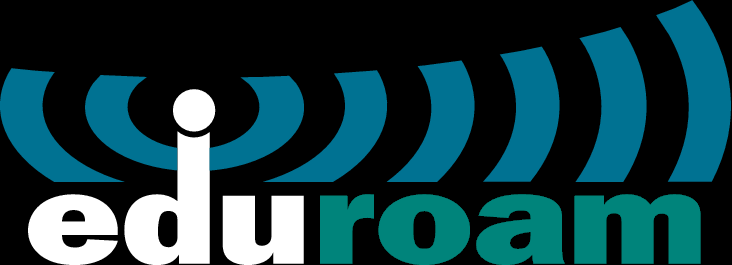EduroamEN

About eduroam
eduroam for students, researchers and educators Get connected, wherever you are
What is eduroam
eduroam (education roaming) is a secure international roaming service for the international research and education community. eduroam allows users from participating institutions to obtain Internet connectivity across campus and when visiting other participating institutions by simply opening their laptop.
eduroam is based on a federated authentication model where your username and password are validated at your home institution (identity provider) and access to authorised network services are controlled by the visited institution (service provider).
History
The eduroam initiative started in 2003 within TERENA's task force TF-Mobility which demonstrated the feasibility of combining a RADIUS-based infrastructure with IEEE 802.1X technology to provide roaming network access across research and education networks and was based on the initial federated 802.1X authentication work of the Open1X Group at the University of Utah in 2001. The initial test was conducted among five institutions located in the Netherlands, Finland, Portugal, Croatia and the UK. Later, other national research and education network organisations in Europe embraced the idea and gradually started joining the infrastructure, which was then called eduroam. Portugal was the first country to have eduroam and national mobility through eduroam available in almost all its institutions when the national government sponsored a project to deploy Wi-Fi networks in early 2003.
It soon gathered consensus outside Europe. The first non-European country to join eduroam was Australia, in December 2004. eduroam has evolved into a federation of federations (confederation), where the single federations are run at national level, and they all connect to a region. To date there are two confederations: the European and Asia-Pacific (APAN).
What does it do?
For the traveler: eduroam provides per-user, per-session encrypted network access for visitors from participating institutions, without the need to gain guest credentials on arrival to an eduroam enabled location. The connectivity is instantaneous, and the infrastructure is authenticated by the user. Study abroad students can join thousands of eduroam hotspots without any hassle or any data roaming charges.
For the institution: eduroam removes the administrative steps required to provision visitors from other educational institutions. Access between networks from R&E institutions is negotiated once during the federation process and for all members of participating institutions. The eduroam network addresses CALEA requirements for visitors from other schools.
Where can I eduroam?
Where can I use eduroam?
Whether you're moving across campus or spending time studying or working at another research and education institution, eduroam gives you seamless internet connectivity.
More than 10,000 eduroam hotspots are available at universities, research centres, academies, many schools, and other research and education institutions in more than 100 territories around the world. As eduroam grows, more and more hotspots are appearing in additional places such as libraries, museums and public spaces such as railway stations and coffee shops.
Wherever you see 'eduroam' appear in your list of Wi-Fi networks, you can get online.
See the interactive map
How dose it work?
With eduroam installed on your laptop, mobile phone or other device there's no need to request special accounts or borrow other people's IDs - just activate your device and you should be online.
eduroam's secure and privacy-preserving technology means that there is no need to enter usernames and passwords through insecure web browser forms. Your device will identify a valid eduroam access point and log-in automatically. Your password is never shared with any of the access points.
Your password for your online identity is provided to you by your 'home' institution - where you are enrolled in study or are employed.
What Does it Cost?
Thanks to global agreement, the eduroam Wi-Fi roaming service is free-of-charge to users.